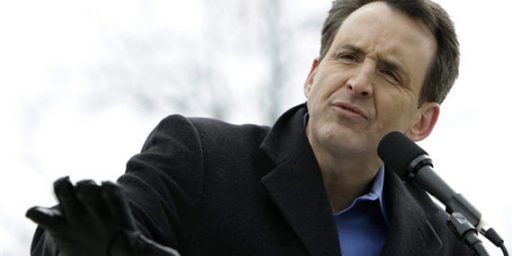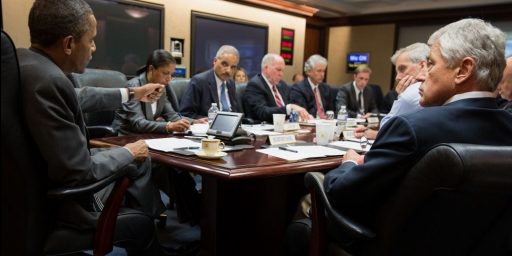Commenting Without Watching
CAP research director Faiz Shakir is getting some traction for a rather odd critique of Bill Kristol’s audacity to comment on the Obama health care summit with Congress even though he admittedly didn’t watch the proceedings live.
Perhaps I’m a bit sensitive on this subject since I did the same thing. Indeed, it’s something I do all the time: Comment on an event that’s in the news even though I wasn’t there and didn’t watch it happen on live television.
Were Kristol or I, say, the Washington Post‘s chief correspondent on the issue, it would be a legitimate criticism — hell, a firing offense — were we to admit that we wrote our coverage based on some wire reports and a few highlights we caught on television. A good writer could pull it off, methinks, but it would shortchange the reader because event reporters are supposed to attend the whole thing so as not to miss anything.
As commenters, however, it’s perfectly reasonable to read and watch news highlights, post-event reactions, and so forth and reach conclusions as to whether the summit achieved its intended purpose, speculate on what motivated the participants, and the like. Being in attendance and talking to principals after the fact might be helpful but only marginally so.
Presumably, Shakir does this routinely. I don’t know, for example, whether he watched yesterday’s episode of “This Week” live or even saw the roundtable via TiVo-delay. Quite possibly, an intern found this clip and presented it to him. Regardless, it doesn’t matter: He has the information necessary to write the post in question.
For that matter, commenters frequently comment on things they couldn’t have possibly seen live. They happened in closed session. They happened before we were born. They happened while we were doing our day jobs. Whatever. Most of us rely on second-hand accounts of events.






I rarely watch a speech. It is much faster to read it afterwards. Same with this type of event, though it was too long and too predictable. I dont see where people find the time to listen to talk radio or watch cable stuff. Much faster and efficient to read and you can fact check as you go along.
Steve
Didn’t you get the memo? Pundits are, by definition, experts on anything and everything.
It’s a lot easier to deny your opponents the floor because they weren’t there/didn’t watch than it is to address their arguments directly.